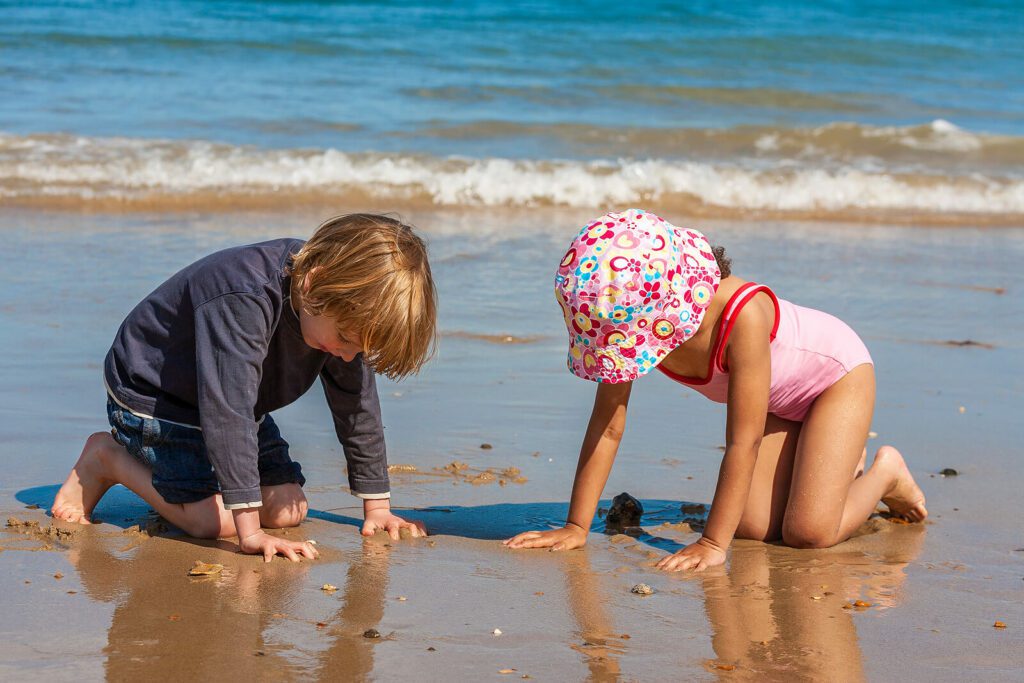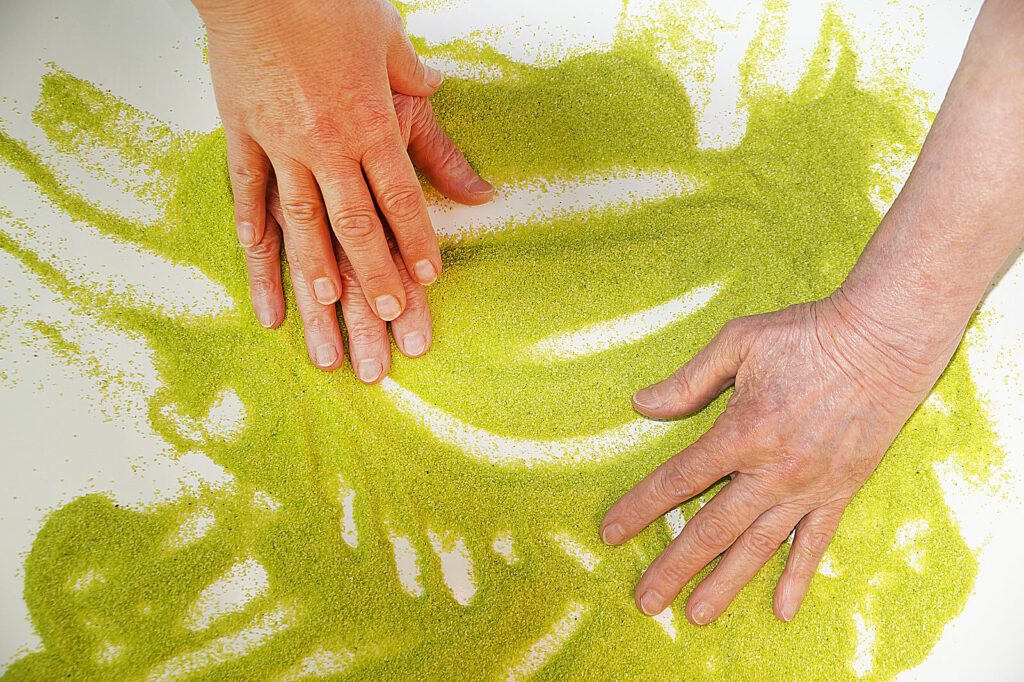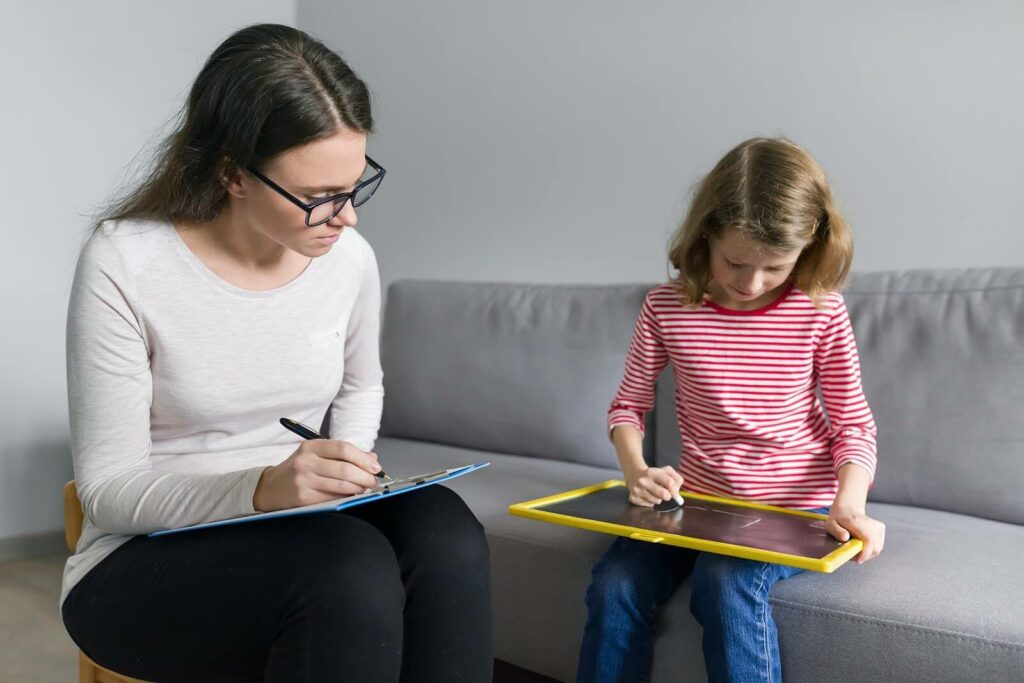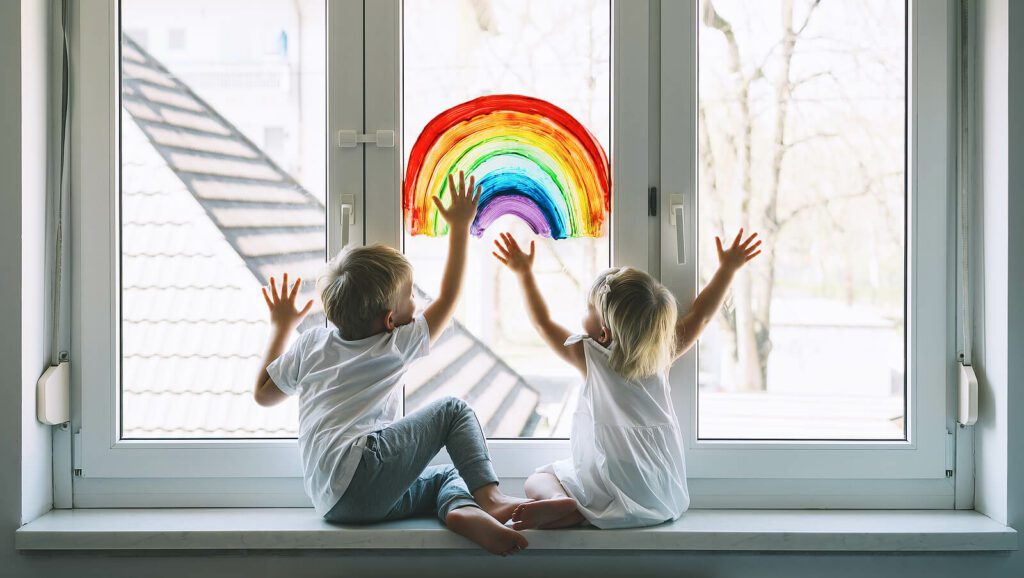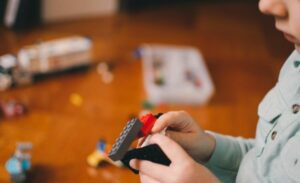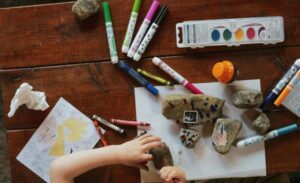If you are looking to support your child and your family, using play therapy, here is some more information about it from a licensed therapist and experienced play therapist.
What is Play therapy? Play therapy is likely the very best option for your child, it is that simple, but let me explain why. Play is actually not the light-hearted empty entertainment that we often think of it as. Instead, play is an ongoing process by the child. This process involves skill building, conflict resolution, and problem-solving regarding everything from physics to interpersonal relationships. Play is powerful and natural to children. Using it to help them to understand themselves, their world, and how to most effectively solve their problems makes good sense and as it turns out is very effective.
Picture this; a first grader goes to school and has an argument with their best friend on the playground. It’s upsetting, but the day goes on. As soon as that child has some free time they will find toys or sticks or whatever they can to play out some version of the conflict. They may play out the actual aspects of the conflict as they recall them. Or, they may play out the internal feelings they have. They may smash toys together or express physically what they are experiencing internally.
What Does Play Therapy Look Like?
In play therapy, the therapist has toys, games & art supplies. They invite the child to explore and play freely. As they gain rapport together, the therapist will naturally join the child in play, often by invitation from the child. When the therapist is able to be in that world with the child the therapist can learn about the child without the child having to say anything directly to them, and even if the child is unclear about what their own struggles and strengths are, the skilled therapist will be able to gain clarity for the child and family simply by spending time playing with the child. The child will communicate experientially to the therapist. So that even though the child never said anything directly, the child and the therapist have shared experiences that inform the therapist.
Related Reads:
- How to Help a Child with Problem Behaviors
- How To Talk To Kids About Gun Violence
- Raising Sensitive Kids
- My Cup Runneth Over: Early Parenting Myths
- Does Therapy for “Baby Blues” Work?
- What is Play Therapy and Benefits of Play Therapy
- Depression in Moms
Once the therapist can see what the focus is, then they are able to support the child in more consciously understanding their own experience and gaining mastery over it.
Sometimes this process even happens in play and very young children may do very little talk therapy. Just like the child communicated experientially to the therapist, the therapist can inversely communicate new skills and understanding to the child non-verbally. All via their shared experience in play. The child will have an experiential therapeutic process that feels mostly like going to play with the therapist, but they leave feeling lighter and safer than usual.
Meanwhile, the parents meet regularly with the therapist and are therefore privy to the process as well as ways to further support and facilitate their child when they leave the office. So essentially, play therapy is the most gentle and intuitive way for children to navigate struggles and for their parents to support them.
Directive versus Non-Directive Play Therapy
There are two main types of play therapy; directive and non-directive. Most therapists use some combination. Directive play therapy is when the therapist directs the play by telling the child to act out specific struggles or events with the toys. There is a variation in what direction the therapist may give, but this example is a fairly common directive play therapy intervention.
Non-directive play therapy at its essence trusts the child to direct the play that is perfect for both their needs and tolerance in that session.
Most therapists use a mix of directive, non-directive, and talk therapy in sessions.
This would mean that instead of exclusively play-based and non-verbal therapeutic interventions the therapist may also say or ask direct things about the child’s play or experiences. Additionally, the therapist in this style may be directive and verbalize skills and realizations for the child that might help them feel better too.
Directive and non-directive are quite complimentary when used by a skilled therapist. Giving the child enough room to bring things into the session that directive therapy may have missed while using some direction to make the therapeutic gains more conscious. When a child is old enough to work in therapy consciously, it can be a great bridge for parents to support therapy as well. But, it is not necessary. A skilled therapist can use non-directive play therapy and have plenty to share with parents. Play therapy reveals deeply effective ways for the parent to support the child. All without the parents ever having to name what is happening with the child.
What is play therapy used for?
- Anxiety in children
- Depression in children
- ADHD/ADD in children
- Behavior outbursts or challenges
- Divorce, custody, and life changes
- Grief and loss
Play therapy is used for nearly all childhood mental health struggles. It is also used in supporting ADHD and no-verbal skill building for neurodivergent children. The reason that play therapy is so widely effective is simply because it is the way that children naturally process and understand nearly everything at every stage of development.
The Ages That Play Therapy Works Well for Are as Young as Toddlers and as Old as Middle School
Of course, each child varies as they age. As a result, they may not like the word ‘play’ as part of the therapy. Once children begin to age out of play, therapists tend to use art, talk, journaling, or card games that are not so associated with ‘kid stuff’ as both a facilitator and a way to build rapport. The truth is that we know from research that even adults benefit from play as a means of moving through challenging times.
While children gain the capacity to process struggles by talking and by mastering abstract thinking, play is a powerful tool throughout our lives.
Some therapists also use play therapy with adults. Some common ways that this is used is via, sand play, art therapy, wilderness or adventure-based therapy as well actually using toys. It is astonishing what comes forth from the psyche when you invite an adult to use their imagination with toys. It may be much the same form of projection that children are engaging in. But, as adults, we mostly stop doing it.
We are actually quite blessed that children process through play. It is such a gracious way for therapists to access their inner worlds without the child feeling put off. Once a skilled therapist gains rapport with a child, the inner work they can do is often more effective and more efficient than the work that the average adult can accomplish in therapy.
Begin Play Therapy in Boulder, CO
The therapeutic power of play can offer many benefits for your child. Our team of caring therapists understands how to make the most of play, and can also offer support for you as well. We are happy to offer support from our Boulder, CO-based therapy practice, and across the state. To start your therapy journey, please follow these simple steps:
- Contact our therapy center
- Request an appointment to learn more about our team
- Begin play therapy for your child!
Other Services Offered with North Boulder Counseling
Play therapy isn’t the only service offered at our Boulder, CO-based therapy practice. Our team is honored to offer a number of mental health services in person and online across the state. We are also happy to provide support via anxiety counseling, eating disorder treatment, trauma therapy/PTSD treatment, depression therapy, and mindfulness-based therapy. We offer therapy services for the whole family, including counseling for men, women, teens, and children. Other therapy services offered include LGBTQ counseling, anxiety intensive treatment, postpartum anxiety treatment, parent coaching, and co-parenting. Feel free to learn more about us, or visit our blog for more info!

